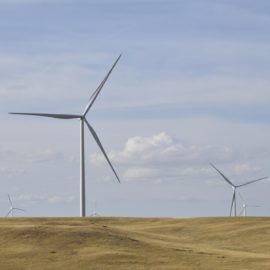
There was a fear but all supported the plan they all worked on for the Governor.
A state task force on Monday unanimously approved a plan to reduce Louisiana’s greenhouse gas emissions to “net zero” levels by 2050, a path toward a green future for a state long reliant on fossil fuels. The plan calls for various industries to use wind, solar and other renewable resources to power their operations. It also calls on companies to switch from carbon-based fuels to hydrogen-based fuels. Members of Gov. John Bel Edwards’ Climate Initiatives Task Force met for over a year to hammer out the plan’s particulars. The group included representatives of the electric, oil and gas and petrochemical industries, as well as environmental advocates and residents from diverse backgrounds. The plan’s approval is just an initial step, task force members said; residents must press state leaders to ensure plan’s goals are implemented. “The success of this is going to be dependent on the public engaging and really grappling with these issues and understanding and asking for more action,” said Harry Vorhoff, chairman of the task force and deputy director of the Governor’s Office of Coastal Activities.
Edwards thanked the members for their work and this makes us the first Southern state with such a plan.
In a prerecorded message to the task force before their vote, Edwards thanked its members for creating “the first statewide plan in the Deep South to reduce greenhouse gas emissions to net zero from a top energy producing state.” The final version of the plan, which was released publicly after the vote, includes an appendix listing dissents filed to the individual actions by task force members. According to Lindsay Cooper, a policy advisor in the governor’s coastal activities office, dissents were filed on 29 of the plan’s 84 action proposals. No action had more than five dissents; eighteen actions had only one person objecting to them. Industry representatives voiced concerns that plans to substitute non-carbon fuels for natural gas or coal in the state’s electricity industry might result in disruptions that will affect the economy. They also said that market forces, rather than state regulations, should be used to push greenhouse gas reductions, and that additional state regulations would disrupt existing and new manufacturing plants. Several said that though they were voting in favor of the plan, they expected to address provisions as they were considered by the Legislature or the state Public Service Commission. “Overall, I personally am in line with the governor’s goals to reduce greenhouse gas emissions and as a representative of Entergy, our goals of achieving net zero emissions by 2050 are also aligned with those of this task force and this governor,” said Entergy executive and task force member Jonathan Bourg.
Yes, I support the overall plan but maybe not this way. Those were some of the comment types.
But Bourg did take issue with the plan’s call for the deregulation of power generation, which he said could threaten the reliability of the state’s transmission grid. “We look forward to working with the state and others in not only achieving (emission reductions), but achieving it in a way that does not do undue harm to Louisiana as an economic engine,” Bowser said. Environmental groups and Black and indigenous residents, meanwhile, raised concerns about the plan’s reliance on capturing carbon emissions and disposing carbon dioxide deep underground. They said the practice was an unproven technology made more difficult by Louisiana’s complex underground geology, and that building those facilities would pose threats to communities. Task force member Colette Pichon Battle, co-director of the Gulf Coast Center for Law And Policy, which represents people of color in cases involving climate and environmental equity, listed objections to 17 of the plan’s action points, the most raised by any of the task force members. She joined others in objecting to carbon sequestration and the inclusion of “blue” hydrogen, which she said would produce more greenhouse gases than offset in replacing carbon fuels. And she said the plan’s focus on the “math, the statistics, the science” of reducing greenhouse gas emission tended to downplay its opportunity to benefit Louisiana residents already impacted by climate change. “This is not just about what technologies we can put out into the world to try to balance the dirty things you put into the air,” she said. “It means we’re going to have to actually slow down, stop, halt the production of the bad things that harm our soul and our air in the communities that are next to them.”
Some aspects of the plan are way to implement but our mind set that we are a gas and oil state, which we are no longer, will get in the way.
While many of the plan’s recommendations can be implemented quickly, some will be difficult, “especially in a state that tends to think of itself as an oil and gas state,” added task force member Terrence Chambers, a University of Louisiana at Lafayette mechanical engineering professor. But the state is already well placed to embrace renewable resources, since the facilities and workers now serving the oil and gas industry can readily adapt to technologies like offshore wind platforms, he said. “There’s no reason Louisiana can’t become a net exporter of renewable energy,” Chambers said.
The plan will be reported to the Governor today and then the real work begins.
The plan will be officially delivered to Edwards on Tuesday, and the task force will meet during the first week in March to discuss future actions needed to implement the plan. The plan and a brief executive summary are available online.
This is a start and a way to help the state move forward. We should embrace it and support it.


